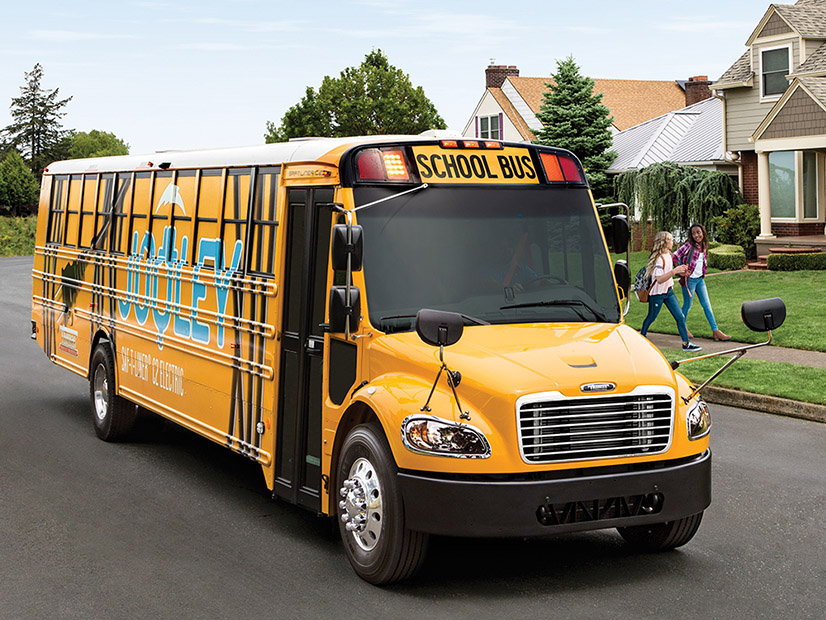The New Jersey Senate Transportation Committee approved a bill Thursday that would allocate $45 million for a three-year pilot program for electric school buses.
The bill (S759), which advanced with a 6-0 vote and one abstention, would create a program under which six districts or contractors each year would assess the reliability and effectiveness of using electric buses in place of diesel-powered vehicles. At least half of the districts or contractors would be in low-income, urban or environmental justice communities.
During the pilot, the performance of the buses would be evaluated and data on costs, maintenance, fuel and bus speed and movements would be collected and submitted to the New Jersey Department of Environmental Protection.
The bill’s introduction comes amid concerns from environmental groups that the state should move more quickly toward electrification of school and transit buses. As of last October, there were no electric school buses registered in New Jersey, said Atlas Public Policy, a Washington D.C.-based consultant on transportation and building electrification issues. (See NJ Floats New Electric Bus Plan.)
Three environmental groups spoke in support of the bill, and nobody opposed it.
“Senate Bill 759 will begin the process of replacing diesel school buses,” Anjuli Ramos, New Jersey director at Sierra Club, told the committee. While up-front costs of electric buses are high, she said, clean energy buses can be cheaper in the long run.
“The economic and environmental benefits of using electric school buses far outweigh using diesel buses,” Ramos said.
Project Delay
Converting to electric buses is one piece of the New Jersey effort to get 330,000 electric vehicles on the road by 2025 and reach 100% clean energy by 2050. The state is mid-way through enacting a rule proposal to encourage the creation of charging stations that would service electric buses and medium- and heavy-duty trucks. (See NJ’s EV Charger Rules Face Scrutiny.)
New Jersey has allocated $22 million since 2019 for 18 school districts or bus contractors to help buy 71 electric school buses. Pam Frank, CEO of ChargEVC-NJ, an advocacy group that champions electric vehicle policies, told a senate committee in November that none of the buses are in operation.
The $45 million pilot program bill follows similar legislation introduced in November that secured Senate approval, 35-3, but did not advance in the assembly before the legislative term ended in January. That bill followed legislation that would have allocated $10 million to fund three test projects, which also did not pass.
Doug O’Malley, state director of Environment New Jersey, said he hoped the bill “can move forward quickly in both houses.”
“This pilot program is designed not only to get electric school buses on the road, but be able to figure out what works,” he said.
NJ Transit, the state’s mass transportation agency, said this week that the delivery of eight buses for the pilot in Camden has been delayed by more than six months.
The agency approved a $9.5 million purchase of eight buses in October as part of an effort to convert its fleet of 3,000 buses to zero emission by 2040. The buses will operate out of the Newton Avenue Bus Garage in Camden, which is undergoing a $3 million renovation, including the installation of chargers.
NJ Transit said this week that the agency expected the first of the new buses to arrive by the end of 2021. But they are now scheduled for arrival in June, with the full complement of eight arriving by the end of the year. The agency agreed to the delay during the solicitation phase, at the request of vendors who sought more time to prepare, a spokesperson told NetZero Insider.



